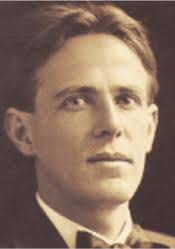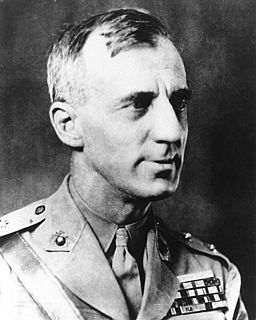A Quote by Ralph Waldo Emerson
The only compensation which war offers for its manifold mischiefs, is in the great personal qualities to which it gives scope and occasion.
Related Quotes
[The career a young man should choose should be] one that is most consonant with our dignity, one that is based on ideas of whose truth we are wholly convinced, one that offers us largest scope in working for humanity and approaching that general goal towards which each profession offers only one of the means: the goal of perfection ... If he works only for himself he can become a famous scholar, a great sage, an excellent imaginative writer [ Dichter ], but never a perfected, a truly great man.
To some it may seem old-fashioned to speak of virtue and chastity, honesty, morality, faith, character, but these are the qualities which have built great men and women and point the way by which one may find happiness in the living of today and eternal joy in the world to come. These are the qualities which are the anchors to our lives, in spite of the trials, the tragedies, the pestilences, and the cruelties of war which bring in their wake appalling destruction, hunger, and bloodshed
Beyond the horizon, or even the knowledge, of the cities along the coast, a great, creative impulse is at work -- the only thing, after all, that gives this continent meaning and a guarantee of the future. Every Australian ought to climb up here, once in a way, and glimpse the various, manifold life of which he is a part.
You’ll join me sooner than you know in a place with . . . no illusions, where the truth is the only architecture, the only color, the only sound--where that which we sense merely on occasion, and which takes us up and gives us the rare and beautiful glimpses of the things we truly love, flows in deep rivers and tumbles about like clouds in the sky.
War is the realm of uncertainty; three-quarters of the factors on which action in war is based are wrapped in a fog of greater or lesser uncertainty. ... war is the realm of chance. No other human activity gives it greater scope; no other has such incessant and varied dealings with this intruder. Chance makes everything more uncertain and interferes with the whole course of events.
Manufacturing establishments not only occasion a positive augmentation of the produce and revenue of the society . . . they contribute essentially to rendering them greater than they could possibly be, without such establishments. These circumstances are . . . greater scope for the diversity of talents and dispositions which discriminate men from each other.
Identification with one's office or title is very attractive indeed, which is precisely why so many men are nothing more than the decorum accorded to them by society. In vain would one look for a personality behind the husk. Underneath one would find a very pitiable little creature. That is why the office is so attractive: it offers easy compensation for personal deficiencies.
The spirit of God, like the sun, always gives all its light at once. The spirit of man resembles the pale moon, which has its phases, its absences and its returns, its lucidity and its spots, its fullness and its disappearance, which borrows all its light from the rays of the sun, and which still dares to intercept them on occasion.
"War," says Machiavelli, "ought to be the only study of a prince;" and by a prince he means every sort of state, however constituted. "He ought," says this great political doctor, "to consider peace only as a breathing-time, which gives him leisure to contrive, and furnishes ability to execute military plans." A meditation on the conduct of political societies made old Hobbes imagine that war was the state of nature.
One of the many, many things I hate about war is how it trivializes the personal. The big themes, the broad sweep, the emergency measures, the national identity, all the things that a particular kind of man with a particular kind of power urge adores, these are the things that become important. War gives the lie to the personal, drowns it in meetings, alarms, sacrifices. The personal is only allowed to return as death.
The second best thing about space travel is that the distances involved make war very difficult, usually impractical, and almost always unnecessary. This is probably a loss for most people, since war is our race's most popular diversion, one which gives purpose and color to dull and stupid lives. But it is a great boon to the intelligent man who fights only when he must-never for sport.










































